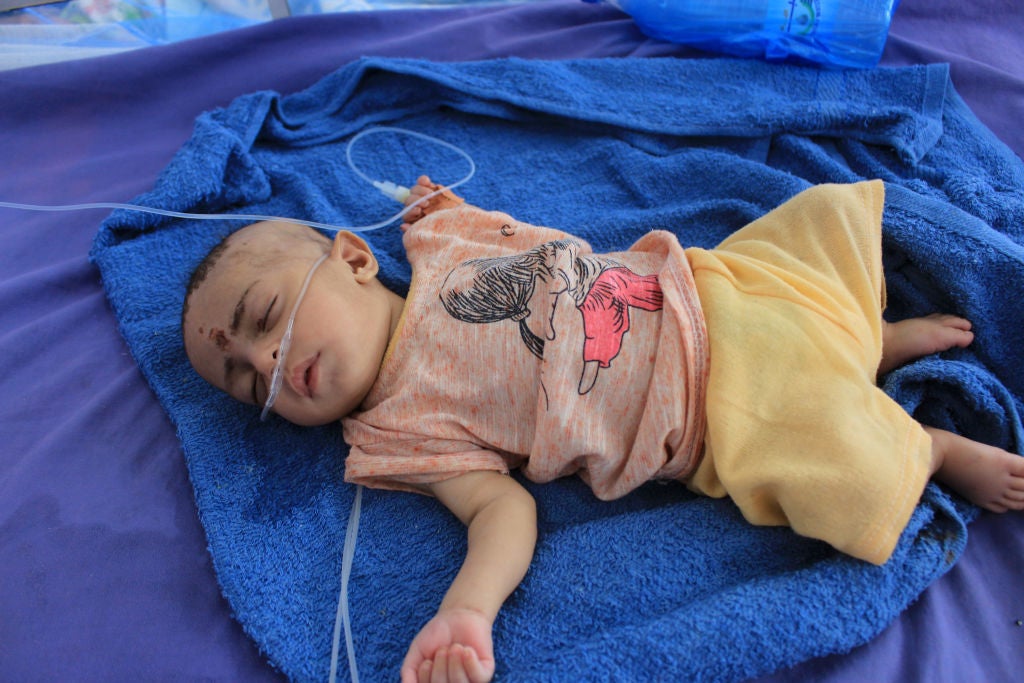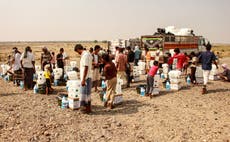‘Donor fatigue’ is deadly – how the world turned its back on Yemen
Despite the humanitarian crisis reaching devastating lows, the UN and other agencies have had to shut down programmes in Yemen, including food assistance, because they don’t have enough money, writes Bel Trew


Fatigue kills. It is little discussed in regions where wars, disease and hunger stalk communities and homes. But across the world, fatigue is also a silent killer. After years of conflict, and the ugly procession of associated woes that follow, it is hard to keep states, citizens and, crucially, donors interested in the worst humanitarian crises.
As a journalist, it is a challenge to find new ways to tell the stories of the most vulnerable, especially during a global pandemic when readers are facing so many of their own personal problems.
In that paralysing malaise, interest wanes, donations drop and aid dwindles to a trickle right at one of the most challenging times for the planet. The United Nations has repeatedly warned that the devastating impact of the pandemic and the global recession could translate into almost record levels of abject poverty, and famines of “biblical proportions” for swathes of the world in 2021.
One of the worst-hit countries will be Yemen, which is already in the grip of the most severe humanitarian crisis in the world.
Last week, the World Food Programme, Unicef and the Food and Agriculture Organisation again sounded the alarm, saying that Yemen is “just one step away from famine”, particularly if there is no immediate injection of humanitarian aid to avert disaster.
It’s hard to compute the numbers because they are so huge. According to the UN, more than half the population – a staggering 16.2 million – will be facing crisis levels of hunger by the middle of next year. The number of people in famine-like conditions will triple to 47,000 in the same period. The number of people just one step below famine will surge from 3.6 million to 5 million. Over 80 per cent of the population – or more than 24 million people – relies on aid and assistance to survive, and that number is also expected to rise.
Yemen was already afflicted by poverty and hunger before a civil war erupted in late 2014 with the takeover by the Iran-backed Houthi rebels, who ousted the government. The launch of the Saudi-backed bombing campaign to reinstate the government has only led to further devastation. More recently, the fighting has sparked a war within a war, with southern separatists, once allied to the Saudi-backed government, turning on their former allies to battle for an independent south.
And so, six years on, there is little hope of a resolution to the ruinous conflicts, which the UN this week said have killed 233,000, including more than 3,000 children. In Yemen, however, bombs are not the deadliest weapon; of the hundreds of thousands of people killed in Yemen’s war, more than half died from indirect causes, such as lack of food, health service and infrastructure.
This has only been made worse over the last few months by floods, a fuel crisis, the pandemic and desert-locust infestations, which have not been curtailed because of the fighting and are expected to have caused losses of $222m (£165m) to crops and livestock.
Piling further pressure on top of this is the lack of aid funds. Despite the situation and the humanitarian crisis reaching new and devastating lows, the UN and the agencies have had to shut down different programmes in Yemen, including food assistance, because they don’t have enough money.
Last month, Mark Lowcock, the UN’s humanitarian chief, said that, with just a few weeks of the year left, the 2020 response plan had received $1.5bn, less than half of the $3.4bn they need for their appeal. At the same point last year, the UN had received twice this amount, even though the number of people desperately in need in Yemen has soared in comparison with 2019.
With less than a month to go until the end of the year, Unicef said this week that its humanitarian appeal for 2020 was $300m short: requiring $535m to run their programmes, they have received just $237m.
In September, the UK did announce a new £5.8m aid package to avert famine in Yemen. But several countries, including those in the Gulf, have failed to fulfil their pledges.
The UN has warned that if countries do not step in now, cuts will continue next year and may be even more severe than 2020. Unless funding is urgently received, the forecasts of the number of those starving or in need will actually be underestimates.
And that is how fatigue – donor fatigue, specifically – can be so deadly. Unless countries step up and help, and their citizens demand they do so, many more people will be pushed to the brink.
2021 is expected to be an exceptionally bleak year for so many in the world. Yemen will no doubt be among the hardest hit.



Join our commenting forum
Join thought-provoking conversations, follow other Independent readers and see their replies
Comments